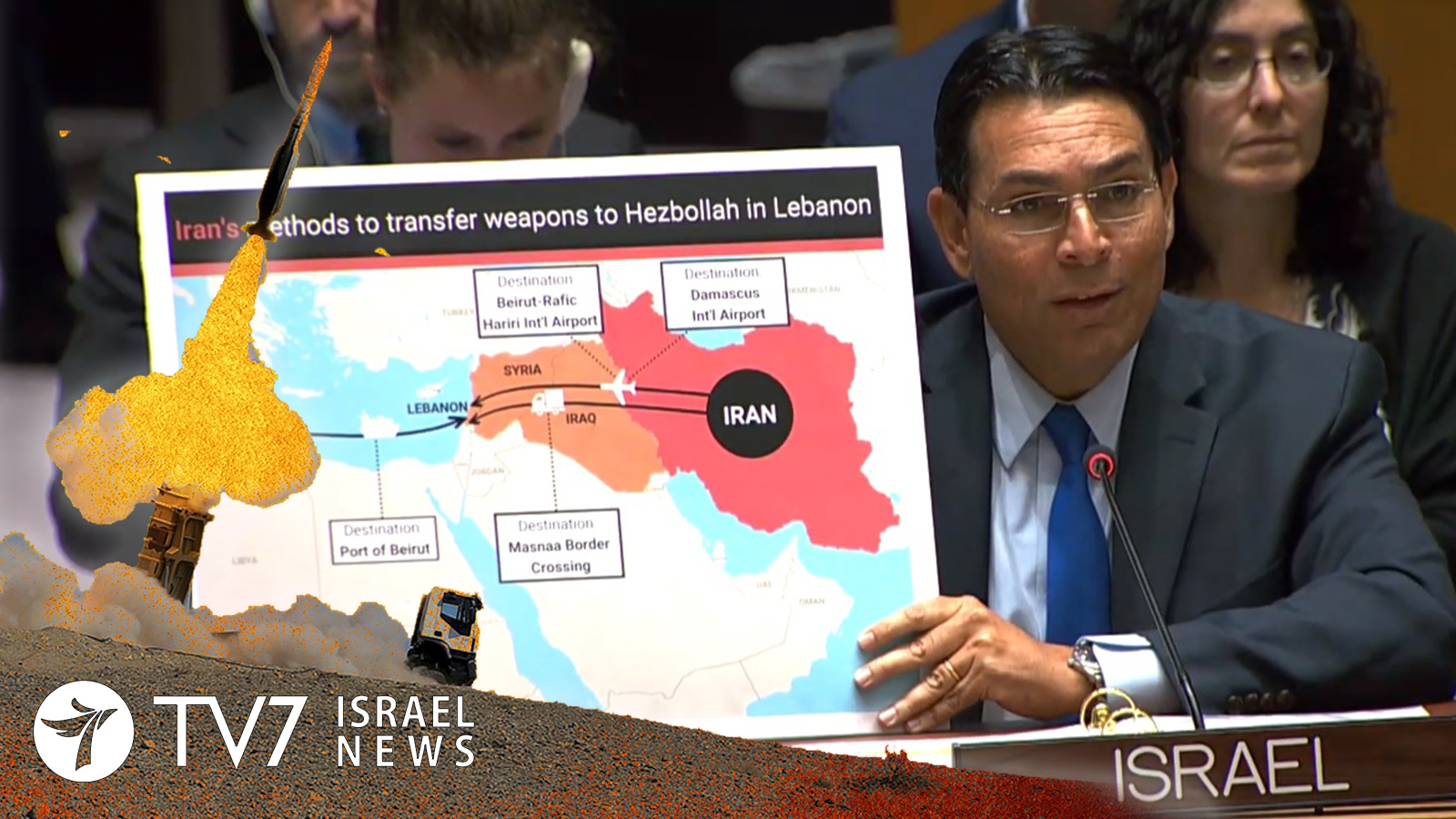Israel’s Ambassador to the United Nations warned the Security Council that Iran is exploiting the Port of Beirut to smuggle weapons to its Hezbollah proxy, underscoring that it is “harder and harder to tell where Beirut ends and Tehran begins.”
Danny Danon said “The Port of Beirut is now the Port of Hezbollah.”
“Israel found that Iran and the Quds Force have begun to advance the exploitation of the civilian maritime channels, and specifically the Port of Beirut,” Danon revealed, adding that the newest method of Iranian weapons smuggling comes in the wake of its longtime use of civilian airports in Syria and Lebanon, and deployment of arms convoys between the two countries.
The Quds Force is a unit of the Islamic Revolutionary Guards (IRGC) charged with unconventional warfare and intelligence activities in extraterritorial operations, under the command of Iranian Major General Qassem Suleimani.
Danon showed the 15-member Security Council a map of routes into Lebanon taken by the Quds Force to deliver “dual-use items,” purchased from companies such as the Syrian Scientific Studies and Research Center, “to advance Hezbollah’s rocket and missile capabilities and conversion program.”
After stressing “The true nature of these purchases is against Israel and its citizens,” Jerusalem’s diplomatic envoy queried, “Every member state in this organization must ask itself the following questions: Are you absolutely sure your companies are not the ones selling dual-use equipment to the hands of Hezbollah?” Danon further pressed the UNSC member states, “Are you sure your citizens know the end-users of these dual-use items? Mr. President, The Iranian regime’s targets for exporting the revolution stretch far beyond the banks of the Mediterranean.”
Israel sees Hezbollah, against which it fought the month-long 2006 Second Lebanon War, as the biggest threat on its borders. Danon demanded the Security Council take action to enforce Resolution 1701 that ended the conflict and restricted all arms sales and transfers exclusively to the Lebanese government; as well as Resolution 1559, requiring all armed non-governmental groups in Lebanon to disarm.
Danon made additional call on the Security Council to take decisive action against the nuclear threat posed by the Islamic Republic of Iran, saying, “We simply do not have the luxury to give the Iranian regime the benefit of the doubt. Now is not the time for optimism, but the time for realism.” Warning that “We learn from history that when the international community fails to rise to the occasion before it is too late, the price to pay is unbearable,” Danon insisted, “When it comes to the Iranian regime, now is not the time for appeasement. Now is the time for action.”
The Lebanese and Iranian U.N. envoys reacted with fury to Danon’s allegations. Beirut’s Ambassador Amal Mudallali said her nation viewed the statements as threatening to its “peace and civilian infrastructure,” and possibly constituted Israel’s attempt to justify a future strike on the port. Iranian Deputy Ambassador Eshagh Al-Habib neglected to offer a direct response, but instead argued that Danon “unsuccessfully tried to distract attention” away from Israel’s so-called “crimes and unlawful policies.”
